- Home
- Patricia McLinn
Death on the Diversion
Death on the Diversion Read online
Death on the Diversion
Secret Sleuth, Book 1
Patricia McLinn
High crime on the high seas
Meet Sheila Mackey, who’s just lost her job of 15 years because her “boss” — who’s also her great-aunt Kit — has retired. To soften pushing Sheila out of the nest, Kit sends her on a two-week transatlantic cruise … never expecting that one of the deck chairs is occupied by a dead woman.
Sheila finds the body, and plunges into investigating among guests and crew she’s come to know.
Secret Sleuth series
Death on the Diversion
Death on Torrid Ave. (2019)
Look for more Secret Sleuth mysteries to come!
Death on Beguiling Way
Death on Covert Circle
Other mystery from Patricia McLinn
Caught Dead in Wyoming Series
Sign Off
Left Hanging
Shoot First
Last Ditch
Look Live
Back Story
Cold Open
Hot Roll (2019)
“Colorful characters, intriguing, intelligent mystery, plus the state of Wyoming leaping off every page.”
— Emilie Richards, USA Today bestselling author
Mystery with romance
Proof of Innocence
Price of Innocence (2019)
“Excellent writing with evocative description, vivid characterization, and lots of twists and turns.”
— 5-star review
Ride the River: Rodeo Knights
Bardville, Wyoming series
A Stranger in the Family
A Stranger to Love
The Rancher Meets His Match
Join Patricia McLinn’s Readers List and get news on releases and special deals first.
Copyright © Patricia McLinn
ISBN: 978-1-944126-37-7
EPUB Edition
www.PatriciaMcLinn.com
All rights reserved. No part of this book may be reproduced in any form or by any electronic or mechanical means, including information storage and retrieval systems, without permission in writing from the publisher, except by a reviewer, who may quote brief passages in a review.
Cover design: Art by Karri
* * * *
Dear Readers: If you encounter typos or errors in this book, please send them to me at [email protected]. Even with many layers of editing, mistakes can slip through, alas. But, together, we can eradicate the nasty nuisances. Thank you! — Patricia McLinn
Table of Contents
Cover
Title Page
About the Book
Copyright Page
Prologue
Chapter One
Chapter Two
Chapter Three
Chapter Four
Chapter Five
Chapter Six
Chapter Seven
Chapter Eight
Chapter Nine
Chapter Ten
Chapter Eleven
Chapter Twelve
Chapter Thirteen
Chapter Fourteen
Chapter Fifteen
Chapter Sixteen
Chapter Seventeen
Chapter Eighteen
Chapter Nineteen
Chapter Twenty
Chapter Twenty-One
Chapter Twenty-Two
Chapter Twenty-Three
Chapter Twenty-Four
Chapter Twenty-Five
Chapter Twenty-Six
Chapter Twenty-Seven
Chapter Twenty-Eight
Chapter Twenty-Nine
Chapter Thirty
Chapter Thirty-One
Chapter Thirty-Two
Chapter Thirty-Three
Chapter Thirty-Four
Chapter Thirty-Five
Chapter Thirty-Six
Chapter Thirty-Seven
Chapter Thirty-Eight
Chapter Thirty-Nine
Chapter Forty
Chapter Forty-One
Chapter Forty-Two
Chapter Forty-Three
Chapter Forty-Four
Chapter Forty-Five
Other Books by Patricia McLinn
About the Author
PROLOGUE
Call me Sheila M.
At this moment, I’m walking circuits on the deck of a cruise ship called the Diversion on its two-week repositioning cruise from Barcelona, Spain to Tampa, Florida. I’m being passed by runners, joggers, and faster walkers. That’s all fine with me. I’m enjoying the air and the sun and the peace.
I’m watching people. Eavesdropping a little.
Thinking about the past fifteen years.
Wondering about the next fifty-plus.
I’m about to find a dead body.
But that’s getting ahead of the story.
Sheila M. is not the name you might know me by if you read a certain kind of book, listen to a certain kind of interview, watch a certain kind of TV talk show. Or if you were not in a cave protected from all news about blockbusters — book and movie — fifteen years ago.
But Sheila Mackey is the name I’ll use in the life this story leads to. Might as well start now.
Besides, I’m leaving behind that other person, the one with the name you might know.
This moment in time I’m taking you to occurred while I was transitioning to my current circumstances and transitioning from the life I’d lived the previous fifteen years. Contrary to what most might guess, that past is the boring part. So, let’s get it out of the way.
Back when I was finishing college, I said yes to a job offer.
No big deal, right? It’s what lucky graduates do after college. My friends said yes to job offers with tech firms, oil companies, charity foundations, and the FBI, among other things.
I said yes to my great-aunt.
At that point, Aunt Kit — we left off the great most of the time — had been a working fiction author for more than thirty years after a brief stint in journalism. She’d written mysteries, science fiction, romance, horror, westerns, and more. She’d written under her name and five pen names. She’d ghost-written for celebrities. She’d supported herself with her writing all through those years. Nothing grand, just, as she would say, a working stiff mid-list author.
Then she wrote Abandon All.
A departure for her. A book that bridged the commercial and the literary. A book with huge potential.
A book no one in publishing would buy from her.
That’s not a proven fact, since she never submitted it to any publishers. It was a conclusion she drew from decades of experience in the business.
For this book to reach its potential, she told me during that strangest of job interviews, it needed to have been written by a young, attractive woman from the Midwest. Which she was not. At least not any longer.
“But you are, Sheila. Young, very attractive, from the Midwest, with brains and freshness. You are perfect to be the author of Abandon All.”
I’d laughed. “I can’t be perfect to be its author, because I didn’t write it. I’ve always wanted to write, but I haven’t actually written anything. Much less a novel. Specifically, one called Abandon All.”
“You don’t need to write it, because I have. You need to be its public face — face, figure, and voice. I am, essentially, your ghostwriter. I’ll provide what you need for the public role and pay you.”
There was a good deal more discussion, but the bottom line is I said yes. I was, after all, an English major with an undergraduate degree and no idea what to do next. If Abandon All drew interest from publishers, Aunt Kit would front the money for a trip to New York for both of us.
It did.
&n
bsp; She did.
There was an auction for the right to publish the book — that’s where publishers bid against each other, though there’s no fast-talking auctioneer with a gavel — that set my head spinning.
Abandon All was not just a hit, it was a phenomenon, a cultural icon. The day an interviewer called it this century’s To Kill a Mockingbird, I thought I’d faint right there on live TV.
The movie was even bigger.
In less than a year, Aunt Kit and I moved into a brownstone on the Upper West Side. She paid for it outright.
Over the rest of the fifteen years, my name, face, and voice remained the public front for Aunt Kit’s writing. She wrote eight more books for that persona — me. (Sometimes I forgot it was me and thought of that person as separate.) None reached the Olympian heights of Abandon All, but they did fine financially. She paid me thirty-five percent of the author’s earnings — saying I did more for those books than the agent, who took twenty percent off the top — plus provided my housing, “author” clothing, food, and transportation.
Perhaps more important, she invested my money. Aunt Kit was careful and shrewd.
She also wrote another twenty-five books in her old genres for “fun” and published them independently. That income was all hers, as it should be. Though she argued with me, focusing on the brainstorming I’d done with her, particularly for the mysteries. She would set up a scenario, then we’d sit together and brainstorm how her character would approach figuring out whodunit.
I argued back that it was fun.
She’d snorted. “Might be fun. It’s still work. You’re good at characterization and you, especially, have an excellent grasp of how a character would follow clues. You—”
“Because I’m nosy.”
“—should be writing yourself. Nosiness is a great trait for a writer.”
“Maybe I will write someday.”
Another snort, conveying she knew I didn’t believe it. She stuck to her point. “In the meantime, I should pay you for your input.”
“No. You pay me more than enough for the other.”
She stopped arguing, which meant she planned to see I got that money one way or another.
For the “job” for which I did accept compensation, I did appearances, I spoke at literary events, I walked red carpets, I offered writing advice (culled from Aunt Kit), I was videoed and photographed, and I gave interviews.
No one except the two of us, my parents, and siblings knew I wasn’t writing the books. To the outside world, I was offering a home to my aging relative, instead of vice versa.
I’d said yes on a lark.
I ended up being tied to a lie.
For fifteen years.
Could I have left? Should I have left? Certainly. Probably. I didn’t. So, what’s the use of thinking about it? (An Aunt Kit-ism: You can’t change the past.)
Then, six months ago, she said she was retiring.
She might continue writing her fun books as she felt like it, but she was tired of the literary pretentions Abandon All taught readers and critics to expect when my name was on a cover. She probably also was tired of hearing the author should write another Abandon All. She said one should be enough.
She — she was always kind enough to say we — had earned enough and under her guidance we were both set for life. Plus, there’d be ongoing royalties.
She bought a place on the beach in the Outer Banks of North Carolina, which I was invited to visit at any time, but was not to be my home.
She was pushing me out of the nest.
This cruise was a cushion for my landing and Aunt Kit’s idea for a lowkey farewell performance as the name you’d probably recognize, though no one else knew it was a finale.
One good thing I’d done at the start, more out of a kind of shyness than smarts, was to use one of my middle names and my mother’s maiden name — also Kit’s last name — on the books. That left me other parts of my legal name to use in my new life. Not wanting to return completely to my pre-Abandon All name, I decided on Sheila Mackey, taken from pieces of other family names.
As for the “author” of Abandon All… Time would pass without a new release. If enough questions were asked, a statement would be made about retirement and the desire for privacy. The word recluse might pop up. If it added to the sales of the existing books, we wouldn’t complain.
So that was me, walking around the ship, in mid-air after the push out of the nest.
Would I fly? Would I crash?
Step one: Figure out how to flap these things sticking out at my sides.
No, I take that back.
Step one: Figure out how I got blood on my finger from touching the woman wrapped up in the pool towels.
How’s that for a start on a new life?
Bloody woman and I’m about to become a sleuth with a secret identity.
CHAPTER ONE
“I could kill her.”
It all started when those words floated up to us as Petronella and I walked onto the cruise ship in Barcelona in early November, ten days before I found the woman who’d stopped breathing.
I need to explain about Petronella. Possibly about me, a single woman in her mid-thirties, taking a two-week transatlantic cruise, too.
Aunt Kit explains both.
Petronella was the daughter of Kit’s long-dead fiancé’s cousin from his mother’s side. Welcome to Kit’s world. I got to the point where I referred to everyone as Kit’s relative. It made it easier. Though it did confuse our Guatemalan housekeeper at the brownstone when I introduced her as Kit’s relative to a visiting acquaintance.
Aunt Kit took me on my first cruise shortly after the Abandon All auction and then at least once a year since. Always transatlantic, always from Europe back to the United States, as they moved the ships into place for winter cruises to the Caribbean. (Yes, you can take more than one a year that fit those requirements…with planning.)
“They’re long. They’re frequently out of range of the internet. Low percentage of the passengers attempt to stay as drunk as possible for the duration. You gain an hour about every two and a half days,” was her explanation for choosing those cruises.
I agreed with each point. Also, the author of Abandon All went largely unnoticed on these cruises. A major bonus.
Kit booked this cruise as my transition, and here I was.
But I lied.
Or, more accurately, I was an unreliable narrator in saying it started when Petronella and I boarded the ship. (And notice I didn’t mention Aunt Kit boarding the ship. Yes, she abandoned me on this trip. More — much more — on that later.)
It — the dead woman in the deck chair — started well before I found her body.
If I were Sam Spade, I’d say it started when the dame walked onto the ship. And that would be true — from my POV. POV is author talk for point of view — which character is steering the bus for that part of the story, so the reader experiences it through his or her mind and senses.
From the point of view of the woman dead in the deck chair, it started much earlier. At some point in her life when seeds took root that grew into someone killing her.
For me, it started with that voice carried on an air current up the boxy zigzag of the gangplank.
“I could kill her.”
I looked over the railing to the series of switchback ramps below us that created easygoing boarding for the Diversion. Fellow passengers strung out behind us among the early arrivals that Sunday afternoon. A daisy chain of gray heads interspersed with determinedly not gray heads and sunhats, male and female.
No telling where the words came from. Not even a hundred percent a woman spoke them. More like sixty percent. Maybe fifty-five.
And what did it matter? We’ve all said the same thing how many times in our lives?
Except something in the voice made me look.
Then I forgot about it, because it was our turn to be welcomed onto the Diversion.
In the background stood a young woman
dressed in a crisp white shirt with insignia and nametag over navy slacks, holding balloons and a sign bearing Petronella’s name.
I nudged Petronella with a smile. “Look.”
She clasped a hand to her throat. “Oh, God. Someone’s died.”
“I doubt they’d carry yellow and red balloons to notify you of a death.”
The tears in her eyes apparently blocked her hearing, because she didn’t relinquish her panicked horror as I dragged her toward the smiling young crew member.
“This is Petronella,” I told her.
The young woman’s smile flickered, but she handed an envelope and the red balloon to Petronella. “Hope you enjoy your treat, miss.” She looked at me more shyly. “And I believe this is for you? We were asked not to use your name publicly because… because of who you are.”
Or were.
I didn’t say that aloud. I thanked her for both of us, took the envelope and yellow balloon, and dragged Petronella out of the mainstream of boarding passengers.
I ripped my envelope open. She shook, tears sliding down.
“It’s from Kit,” I said brightly.
“Oh, my God. Kit’s dead!”
“Not unless she’s writing to us from heaven.” Or elsewhere. I loved Kit dearly, but I didn’t see her getting a direct ticket through the pearly gates. “She’s booked manicures for us—” I checked the clock. “—in ten minutes. To get us in the mood and pass some of the time before we can settle in our cabins.”
When you embark on a cruise, your main luggage is whisked away to appear outside your cabin door at some point in the future. All very nice, but that point in the future frequently ends up being unpredictable.
Kit taught me to carry a go-bag to make waiting for the magic more pleasurable.
The go-bag held all the necessities for several hours of relaxation, from sunscreen and sunglasses to reading material and headphones to a few munchies and a thermos of cold water Petronella insisted on filling for me. Today wasn’t hot, but quite warm in the sun.
November on a cruise from eastern Spain to Gulf Course, Florida can be variable. But it’s not November in the Midwest, where I grew up, or Manhattan, where I’d spent the past fifteen years.

_preview.jpg) Almost a Bride (Wyoming Wildflowers Book 1)
Almost a Bride (Wyoming Wildflowers Book 1)_preview.jpg) Prelude to a Wedding (The Wedding Series Book 1)
Prelude to a Wedding (The Wedding Series Book 1)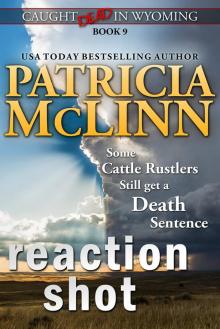 Reaction Shot (Caught Dead in Wyoming, Book 9)
Reaction Shot (Caught Dead in Wyoming, Book 9) Warm Front
Warm Front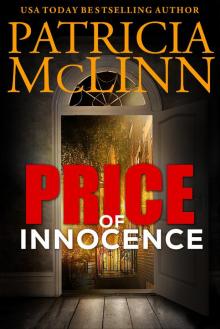 Price of Innocence
Price of Innocence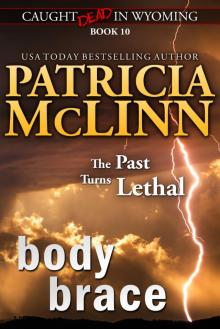 Body Brace (Caught Dead in Wyoming, Book 10)
Body Brace (Caught Dead in Wyoming, Book 10) Death on Covert Circle
Death on Covert Circle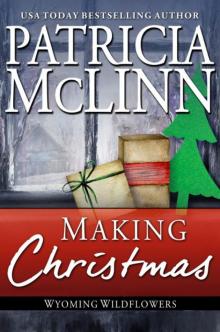 Making Christmas
Making Christmas Death on Torrid Ave.
Death on Torrid Ave.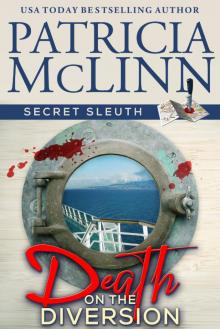 Death on the Diversion
Death on the Diversion The Rancher Meets His Match
The Rancher Meets His Match Widow Woman
Widow Woman The Runaway Bride
The Runaway Bride Hoops
Hoops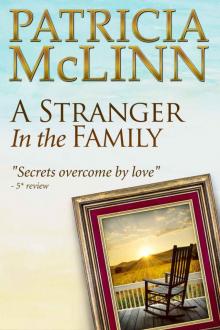 A Stranger in the Family (Book 1, Bardville, Wyoming Trilogy)
A Stranger in the Family (Book 1, Bardville, Wyoming Trilogy)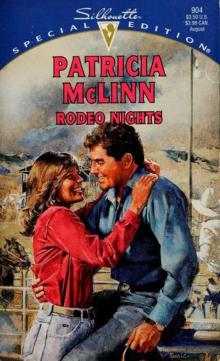 Rodeo Nights
Rodeo Nights Wedding Series Boxed Set (3 Books in 1) (The Wedding Series)
Wedding Series Boxed Set (3 Books in 1) (The Wedding Series)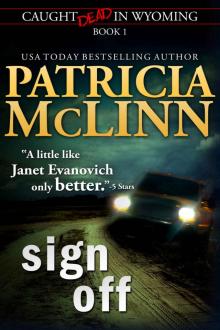 Sign Off (Caught Dead in Wyoming, Book 1)
Sign Off (Caught Dead in Wyoming, Book 1)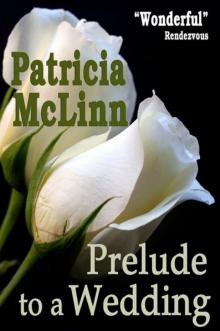 Prelude to a Wedding
Prelude to a Wedding MATCH MADE IN WYOMING
MATCH MADE IN WYOMING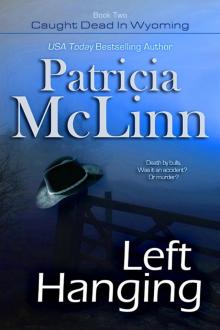 Left Hanging
Left Hanging What Are Friends For?
What Are Friends For?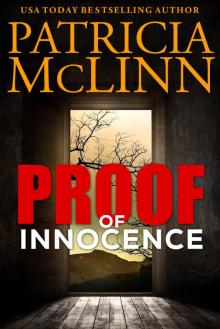 Proof of Innocence
Proof of Innocence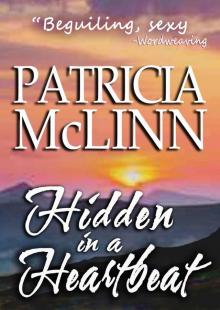 Hidden in a Heartbeat (A Place Called Home, Book 3)
Hidden in a Heartbeat (A Place Called Home, Book 3) Baby Blues and Wedding Bells
Baby Blues and Wedding Bells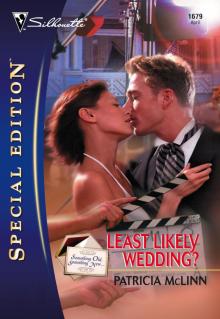 Least Likely Wedding?
Least Likely Wedding? Heart Stealers
Heart Stealers Grady's Wedding
Grady's Wedding Right Brother
Right Brother Wedding of the Century
Wedding of the Century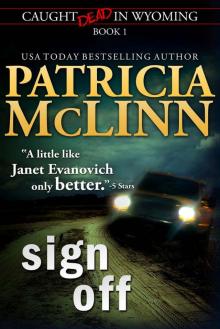 Sign Off
Sign Off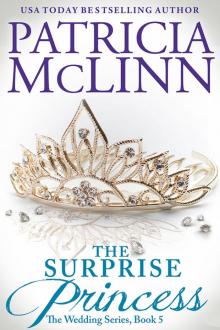 The Surprise Princess
The Surprise Princess Wyoming Wildflowers: The Beginning
Wyoming Wildflowers: The Beginning